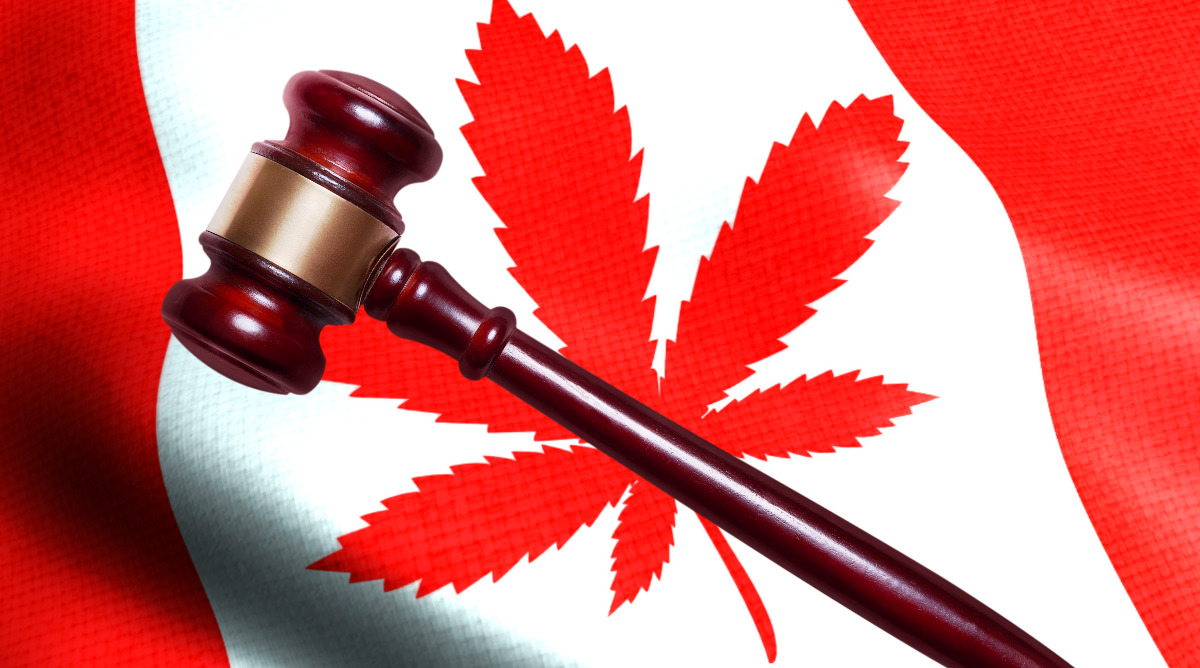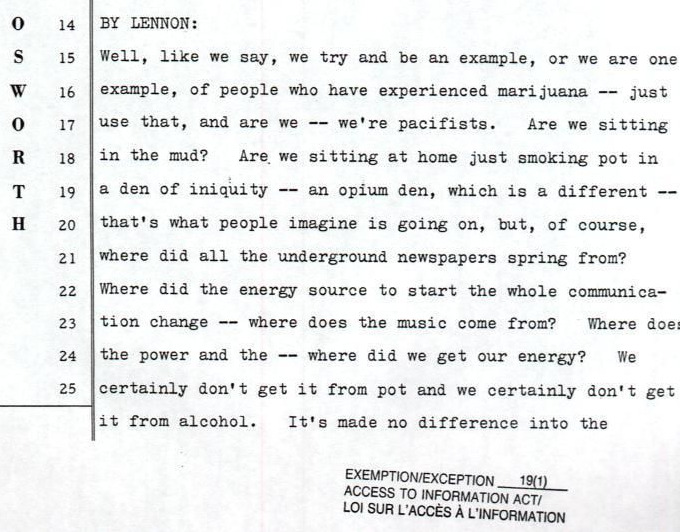
The United States is stuck in the middle of two countries that are or have federally legalized cannabis. To the North, our friendly Canadian neighbors who have legalized medical and recreational marijuana. Mexico is about to follow suit.
There was a war on alcohol. Prohibition followed (and didn’t work). And then alcohol was federally regulated, taxed, and no one can remember what the big deal about booze actually was. Canada has an interesting history of prohibiting marijuana. But the country has created a successful legal infrastructure, and everything seems to be working.
As the United States moves ever closer to federal legalization, we have a close example of what successful federal legalization may look like. How did Canada tackle the legalization of both medical and recreational cannabis? And how well is it really working for them? Or more importantly, how well is it working for patients?
In the ‘dirty thirties,’ there was an important shift in public opinion about marijuana in the United States. In Canada, cannabis wasn’t really a drug that many people had access to. Nonetheless, that shift started in 1923 when cannabis was outlawed in Canada.
Other drugs like opiates were common. But whether it was the cold weather or the further proximity from distribution in the south, Canada never felt it had a marijuana problem. But that didn’t stop Canadian lawmakers from making cannabis illegal.
It wasn’t until 1933 that cannabis arrests were reported in Canada. Almost ten years after it was made illegal by the federal government. And right about the same time as “Reefer Madness” propaganda hit the American news.
First-time possession of cannabis would land you a maximum fine of $1,000 and six months in jail. But despite the criminal penalty and fine, cannabis use became popular in Canada during the 1960s. Go figure. But it was only white, educated, and wealthy people who could afford it and access it.
Perhaps because of the wealthy, white demographic using cannabis, the federal government launched a “Le Dain Commission of Inquiry” study. The inquiry would hold public hearings across Canada for a period of three years. And asked Canadians how they ‘really felt’ about weed and the non-medical use of drugs.
The final report from the Le Dain Commission of Inquiry was published in 1972. This report was impressive! It included 365 submissions that were presented at formal hearings. There were another 50 submissions that went directly to the commission’s office.
The hearings or review of the information about legalization happened in Montreal, Quebec. There were more than 12,000 people in attendance at all the hearings. It also included testimony from people who had an intimate knowledge of cannabis use. Therefore, on December 22, 1960, John Lennon appeared in Montreal and gave his testimony in support of legalization. Yep. That ‘John Lennon’ lent his support with Yoko Ono.
The document containing the testimony of both Lennon and Yoko Ono was sealed because it was held in a private hearing. Only two Health and Welfare Canada officials were present. There is a moratorium on the testimony provided by Yoko Ono, as she is still alive. However, what John Lennon shared has since been released under access to information laws.
Check out what John Lennon had to say about cannabis stigmas. Lennon also goes on to describe a ‘high functioning’ cannabis user. Dispelling the myth of the unemployed couch potato pothead.

The Chair, Gerald Le Dain, recommended the decriminalization of cannabis. And called for the federal legalization of cannabis. The commission felt that it was harmless and that Canadians were not abusing it as a drug. The commission also felt that cannabis would not do any harm to Canadians.
It only took Canadian lawmakers fifty (50) years to listen to the advice and recommendations shared by the Le Dain Commission. The prime minister (Pierre Trudeau) decided to ignore the request to federally legalize marijuana.
However, forty-five years later, his son became the Prime Minister of Canada. And the young, handsome, yoga-practicing, and macrobiotic eating Justin Trudeau did not share his father’s negative views on cannabis.
Prime Minister Justin Trudeau led the effort to federally legalize cannabis. On October 17, 2018, cannabis was no longer illegal in Canada, thanks to the new “Cannabis Act.” But at the same time as the Canadian federal government announced that possession was legal, it also cracked down on unlicensed dispensaries. Not to deter any Canadian from using cannabis, but to make sure that minors did not have access to marijuana.
The only way to get into serious trouble with cannabis now in Canada is to illegally distribute (sell) it without a license, operating an unlicensed dispensary, illegally manufacture, or drive while impaired.
It is a common question. If you live somewhere that has legalized adult-use or recreational cannabis, why would you get (or keep) your medical card? There are actually many advantages for patients who remain enrolled in a Canadian cannabis program.
One of the unusual things about Canada’s marijuana program is how patients purchase cannabis. There are actually no medical marijuana dispensaries. None. But patients can go to a website and buy the products they need from licensed producers that sell directly once they are registered under the Access to Cannabis for Medical Purposes Regulations (ACMPR).
Medical cannabis was legalized first in Canada, back in 2001. Some of the advantages of being a patient under the Canadian ACMPR include:
One of the things that America may emulate from the Canadian cannabis laws is the ability for patients to claim medical cannabis expenses on insurance. And even if the employer-sponsored health insurance does not cover it, the patient can get a nice tax deduction for costs.
Some states allow patients with a medical card to purchase and possess up to four ounces (113.98 grams) of cannabis. That doesn’t always include the legal allowance for edibles. Some states allow residents to have an extra amount of edibles, in addition to the 3-4 ounce limit.
But if the United States follows Canada’s lead and recreational legislation, it could legalize more possession. Instead of capping the maximum amount of cannabis that someone can possess cumulatively, the Cannabis Act in Canada has limited by product type.
Any adult over the age of eighteen (18) years in Canada may possess up to:
If you do the math, that means that the average Canadian can legally possess up to 150 grams of cannabis. That is 5.29 ounces.
Canada is a pretty big place. When you live in a city, it’s not hard to find a dispensary. But if you live in a rural area, finding a place to purchase your cannabis and supplies can get a little tricky.
When it comes to home-grown cannabis, each Canadian over the age of eighteen is allowed to grow up to four (4) plants at home. But there are some hefty safety and security laws that Canadians have to comply with when growing cannabis at home.
Grow more than four plants, and you can face five years less a day in prison. And any Canadian growing cannabis at home must have a permit from Health Canada. And the standard safety rules apply. Cannabis must be home-grown in a secure location that is not accessible to minors. And Canadians may not grow more than the established limit of plants.
One of the obstacles to access for patients in the United States is the out-of-pocket cost for health evaluations. American doctors who provide the health-check services for patients must charge for a medical history file review, plus a telemedicine or in-office appointment. This is why it can get expensive, depending on where you live.
In Canada, however, the cost of getting a medical card is covered. That is because a visit to the doctor is free, with universal healthcare factored into the tax system. Like the United States, patients applying for a medical card in Canada have to have one or more than one of the qualifying health conditions.
Some of the diagnosed conditions that can qualify a patient for medical cannabis in Canada are:
There are authorized practitioners in each province that specialize in helping patients get a medical marijuana card. This is a fast way to direct patients to practitioners who are “cannabis-friendly.” After an appointment with the physician and approval, the physician completes an attestation letter for the patient.
When you are getting a medical card in Canada, the doctor determines an expected amount of dried cannabis intake. This recommendation follows a review of any prescription medications and underlying health conditions that the patient may have.
The attestation letter is then provided as the patient applies for a medical card in the province where they reside. In Canada, Nurse Practitioners may also issue a letter of attestation for a medical card.
No Information on MarijuanaDoctors.Com should be used to diagnose, treat, prevent or cure any disease or condition. You can view our Full Disclaimer here.